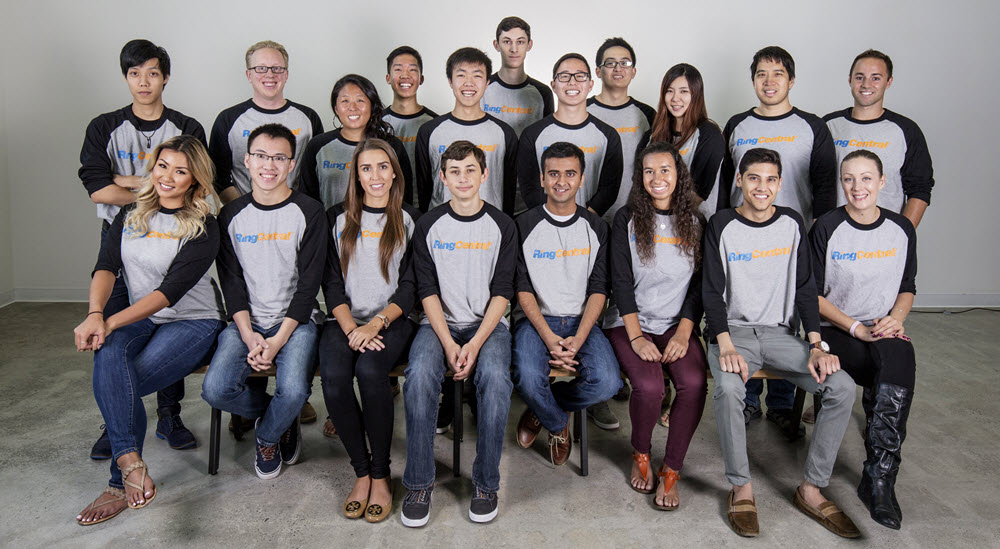Highlights:
- Veterans Day commemorates the end of World War I. Hostilities officially ended at the 11th hour of the 11th day of the 11th month of 1918.
- This annual federal holiday honors all veterans who served in the US Armed Forces.
What’s the difference between Memorial Day and Veterans Day?
Memorial Day is a time to remember those who gave their lives for our country, particularly in battle or from wounds they suffered in battle. Veterans Day honors all of those who have served the country in war or peace — dead or alive — although it’s largely intended to thank living veterans for their sacrifices.
What is RingCentral doing to commemorate Veterans Day?
We’re continuing to partner with organizations that support veterans, including the Wounded Warrior Project and Purple Heart Homes (more on that in a bit). But we’re also putting energy into something we can affect directly and immediately — adding more veterans to our team. We sat down with two vets currently working at RingCentral to get their takes on what veterans bring to the table…and discussed a few ideas for bringing more of them on board.
Our guests:
Steve McCutcheon—Partner Product Trainer, Reno, NV
Sergeant E-5, US Army Reserves – 1988-1996
Jules Coffman—Paralegal, Regulatory Compliance, Cincinnati, OH
Captain, US Army Quartermaster Corps – 1994-1998
RINGCENTRAL: How well (or not) does the military prepare veterans for the transition to the job market?
JULES COFFMAN: “I can only speak for officers—civilian headhunters proactively reach out to officers within 3-6 months of their ETS (Expiration, Term of Service) date – at least that was the case for me. That’s probably quite different from what it would have been like if I was enlisted and solely dependent on military job services. I think the most valuable part of working with headhunters is how they ‘prep’ candidates for the civilian hiring process. It would probably be very helpful if all ETS military service members had the opportunity to go through a 1-2 week course that addresses the process and provides opportunities to practice critical interviewing skills with active or former industry HR recruiters. The exposure to industry HR would provide a real-world experience of the interviewing process, and it’s a sort of a baseline networking opportunity as well.”
STEVE MCCUTCHEON: “As a ‘Citizen Soldier’ I never experienced what an active duty soldier does in terms of transitioning from the military sphere to the civilian one. I moved through my service with full support and cooperation from my employer. During the first Gulf War, my employer at the time told me they’d continue paying my salary if I were to be deployed…which I felt was pretty strong support.”
RC: What would your advice be to someone transitioning from active duty to the workforce?
JC: “Get your pen out, because I have a list.”
Do some research and have some idea of what field you want to pursue because unless you’re an MP who’s transitioning to a police department, your job in the military may not have 100% correlation to the civilian sector.
Get help making your resume civilian-friendly. The base Career Center or local colleges/universities can help you draft a resume that emphasizes your transferable skills in civilian language. “Specialist, E-4, 91A” might not mean much to a civilian recruiter but if you were in charge of a section, those are “supervisory skills.” If you worked in a depot, that’s “warehouse experience.” The list goes on, and really working on your resume is important – you pick up
critical skills in the military; it’s just a matter of translating them into language the civilian sector appreciates and understands.”
Really learn to interview. I would highly recommend dedicating 1-3 days exclusively to interviewing prep – not just learning about the techniques / strategies but actually going through multiple rounds of speed-interview practice sessions. Record those sessions and review them to fine-tune both your verbal and non-verbal skills.
Lock down your look. We all know skills should matter more than appearance, but let’s face it, we’re more confident when we look our best. Get a fresh haircut, hit the thrift stores, and women should also take advantage of the many resources available to help with interview-appropriate makeup.
Create a LinkedIn profile with a solid profile photo and start networking within a year of your ETS date.
Attend any and all job fairs on base, of course.
Ask for letters of recommendation from superiors – this may be a little old school, but I think it still helps.”
SM: “You do have to learn to translate your skills into something the civilian sector understands and values. I had two MOS (Military Occupational Specialties) when I served: Military Police and NBC (Nuclear, Biological, Chemical) Specialist. So skills I picked up like “report writing,” “leadership,” “asset management” and “responsibility for personnel and equipment” are all pluses, “plotting radioactive fallout decay ratios” might not be.”
RC: Is RingCentral active enough in recruiting veterans? Is there something different the company should be doing? Someplace we should be looking that we’re not?
JC: “I think there’s more we could do. Really proactive outreach to military Community Centers, ETS Processing Centers, base Career Centers would make a difference. We are a tech company who thrives on innovation, so let’s help those who serve our country gain some tech skills – perhaps, provide some free training on video conferencing, simple coding classes, on-the-job training opportunities, etc. Let’s be creative and establish non-conventional paths to screen candidates and hire veterans.”
Want to help RingCentral hire veterans? If you’re an employee, a good place to start is the RPeople Referral Program—and if you’re not, consider giving us a signal boost on your social networks.
Want to help us help veterans? RCause can boost the impact of your donations.
We’re supporting the Wounded Warrior Project – honoring and empowering Wounded Warriors who incurred a physical or mental injury, illnesses, or wound, co-incident to military service on or after September 11, 2001 – and Purple Heart Homes – providing housing solutions for service-connected disabled and aging veterans.
Thanks to all veterans everywhere – particularly the veterans at RingCentral, who not only represent every branch of the service, but a wide range of perspectives, backgrounds, genders, and races. We come together to honor the diversity of the vast community of veterans who help us remember—heroes come from everywhere.
#HelloToService
Originally published Nov 10, 2021, updated Nov 12, 2021





